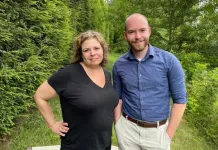(Press-News.org) BOSTON – Massachusetts General Hospital (MGH), a founding member of the Mass General Brigham health system, officially opened the Legorreta Center for Clinical Transplant Tolerance, the first-of-its kind center in the world dedicated to preventing organ rejection after transplant surgery without the use of lifelong immunosuppressive medications. Immunosuppressive medications prevent the immune system from rejecting a transplanted organ, but come with serious side effects, increasing the chance of infections and other illnesses like cancer, diabetes, and heart disease. The mission of the Legorreta Center is to eliminate these risks by eliminating the need for lifelong immunosuppression, improving both the quality-of-life following organ transplantation while extending patient survival.
Newly transplanted organs are considered foreign by the recipient’s immune system, so the immune system attempts to reject them. The new Center’s team will aim to prevent this from happening using a protocol, developed at MGH, which conditions the immune system into ignoring the transplanted organ, a process called immune tolerance. Bone marrow or blood stem cells from a kidney donor are given to the kidney recipient contemporaneously with the transplant surgery. In the weeks after the recipient’s bone marrow infusion, the donor cells train the immune system of the recipient to recognize the new organ as not foreign. While immunosuppressants are still required immediately following surgery at lower doses than conventional transplants, this protocol allows patients to eventually be gradually weaned off their immunosuppressants over a six to twelve month period.
Tatsuo Kawai, MD, PhD, an MGH kidney transplant surgeon for more than 20 years and a leading transplant tolerance expert, will serve as the Center’s first director.
“Over the last almost four decades, our transplant patients have been treated with the same three powerful but toxic immunosuppressive medicines with no major advances in the field. However, we are now ready to radically change the care of transplant patients through transplant tolerance,” said Dr. Kawai.
The Legorreta Center was established with a generous $25 million donation by Pablo G. and Almudena Legorreta. Pablo Legorreta is the founder and Chief Executive Officer of Royalty Pharma, the world’s largest acquirer of biopharmaceutical royalty streams and a leading funder of innovation across the life sciences ecosystem. The donated funds will be used to support clinical trials in the emerging field of transplant tolerance. The gift also establishes the Legorreta Endowed Fund for the Center for Clinical Transplant Tolerance, part of which will be used to encourage basic and translational laboratory studies by young investigators.
“My wife, Almudena, our family and I are grateful for the groundbreaking clinical achievements made by MGH and its team that have enabled transplant patients to thrive without the need for lifelong immunosuppressants,” said Pablo Legorreta. “Our family has been a beneficiary of this life-changing approach developed by MGH physicians, through their cutting-edge research performed for more than 40 years. It is a privilege for our family to support the creation of the Center for Clinical Transplant Tolerance at MGH, to support continued translational research in transplant tolerance, as well as ongoing clinical trials and better treatment of transplant patients.
Kidney transplants account for most organ transplants across the United States and are the most common transplant surgery performed. As such, only kidney recipients are presently eligible to be Center patients, but MGH researchers are working on expanding tolerance induction to all organ transplant patients. MGH is currently enrolling patients in FDA-approved clinical trials for prospective living donor and deceased donor recipients as well as previous living donor kidney recipients if their donor is available to provide bone marrow or blood stem cells.
“Dr. Kawai has devoted his career to the goal of bringing the promise of transplant tolerance to his patients. After decades-long preclinical and clinical research, he is now poised to do just that with the opening of the Legorreta Center,” said Joren C. Madsen, MD, DPhil, Director, MGH Transplant Center.
MGH has been a leader in transplant tolerance for more than four decades, pioneering the tolerance protocol described above in 1998 when patient Janet McCourt of Quincy, Mass., who was suffering from myeloma and kidney failure, received an HLA-matched combined kidney and bone marrow transplant from her sister. Former MGH transplant immunologists David Sachs, MD, Megan Sykes, MD, and hematologist Thomas Spitzer, MD devised the protocol, while A. Benedict Cosimi, MD, and Dr. Kawai performed the operation. Ms. McCourt, now in her 80s, has lived free from myeloma and without immunosuppressants for 25 years. This study was then extended to HLA mismatched kidney transplant recipients without malignancies, solely to induce transplant tolerance by Drs. Kawai, Cosimi and Sachs in 2002. Since then, immunosuppressive drug-free transplant kidney survival up to 17 years has been achieved in the MGH clinical trials.
About the Massachusetts General Hospital
Massachusetts General Hospital, founded in 1811, is the original and largest teaching hospital of Harvard Medical School. The Mass General Research Institute conducts the largest hospital-based research program in the nation, with annual research operations of more than $1 billion and comprises more than 9,500 researchers working across more than 30 institutes, centers and departments. In July 2022, Mass General was named #8 in the U.S. News & World Report list of "America’s Best Hospitals." MGH is a founding member of the Mass General Brigham healthcare system.
END
Massachusetts General Hospital launches first-of-its-kind center for clinical transplant tolerance
2023-08-01
ELSE PRESS RELEASES FROM THIS DATE:
Social media usage negatively impacts the schoolwork of students from adolescence to college research suggests
2023-08-01
Abstract
Research investigating social media use typically focus on late adolescents and young adults, despite a growing number of early adolescents, 93% to 97%—having at least one social media platform. Also, early adolescents are more likely to engage with newer sites, such as Snapchat and Instagram, than older platforms such as Facebook and Twitter. Given the evolving landscape of social media, the present study examines the impact of the use of various social media platforms, along with its moderating effects, on adolescents’ academic achievement, using a sample of N = 1,459 early adolescents. Results were such that, as frequency ...
Fructose intake driver of obesity, just like in hibernating animals, CU Researchers say
2023-08-01
AURORA, Colo. (July 31, 2023) – Researchers at the University of Colorado Anschutz Medical Campus have officially identified a central conduit to obesity: fructose.
While fructose’s contribution to obesity is well-known, a study published today in Philosophical Transactions aggregates a large amount of work to make a full argument for how fructose drives obesity and diseases such as diabetes and fatty liver disease.
“This is an in-depth review on a hypothesis that puts nature at the center of weight ...
Study from School of Neuroscience urges more research into sex differences in depression
2023-08-01
In 2016, recognizing that lack of research in female animals was hampering the success of treatments for mood disorders, the National Institutes of Health (NIH) changed its policy for basic research to include sex as a biological variable for basic research, a move that triggered an explosion of research into sex differences.
“Building a strong unbiased foundation of literature will help uncover more effective and sex-specific biomarkers for depression onset and target better treatment,” said Georgia Hodes, assistant professor in the School of Neuroscience, part of the Virginia Tech College of Science.
Hodes and co-author Dawson Kropp, a Ph.D. ...
Texas A&M chemists, geologists bond over NSF-funded study of clumped isotopes
2023-08-01
Carbon dioxide levels in Earth’s atmosphere — and, consequently, ocean temperatures — are rising. How high and how fast ocean temperatures can rise can be learned from temperature measurements of ancient oceans. At the same time, energy exploration also relies on knowing the thermal history of oil and gas source rocks, which is often difficult to determine.
One of the most promising techniques for measuring ancient ocean temperatures and basin thermal histories relies on the co-enrichment of rare heavy oxygen and heavy carbon ...
Minds & eyes: Study shows dementia more common in older adults with vision issues
2023-08-01
Losing the ability to see clearly, and losing the ability to think or remember clearly, are two of the most dreaded, and preventable, health issues associated with getting older.
Now, a new study lends further weight to the idea that vision problems and dementia are linked.
In a sample of nearly 3,000 older adults who took vision tests and cognitive tests during home visits, the risk of dementia was much higher among those with eyesight problems – including those who weren’t able ...
John Rummel to be honored with the SETI Institute’s 2023 Drake Award
2023-08-01
August 1, 2023, Mountain View, CA – The SETI Institute is proud to announce that Dr. John Rummel will receive the prestigious 2023 Drake Award, recognizing his extraordinary and innovative programmatic contributions and unwavering advocacy for SETI and astrobiology. Rummel’s illustrious career has included roles at NASA Headquarters, where he served as Senior Scientist for Astrobiology, Planetary Protection Officer, Deputy Chief of the Mission from Planet Earth Study Office, and Program Scientist for SETI/High Resolution Microwave Survey. Despite sometimes facing significant opposition, Rummel has been an unwavering supporter of SETI science and funding, working to ...
Beatson Foundation awards grant to Boston College biologist Emrah Altindis for Type 1 diabetes research
2023-08-01
Chestnut Hill, Mass. (08/01/2023 - Boston College Assistant Professor of Biology Emrah Altindis has received a two-year, $275,000-grant from the Beatson Foundation to explore the role of gut microbes and viruses triggering the autoimmunity of Type 1 diabetes.
“Our lab is extremely grateful for the generous funding bestowed upon us by the Beatson Foundation,” Altindis said. “The receipt of this grant has evoked a profound sense of both excitement and gratitude within our team. We recognize the significant impact this funding will have on our research endeavors, particularly in the field of Type 1 Diabetes.”
Funding for the project, titled ...
North Atlantic Oscillation contributes to ‘cold blob' in Atlantic Ocean
2023-08-01
UNIVERSITY PARK, Pa. — A patch of ocean in the North Atlantic is stubbornly cooling while much of the planet warms. This anomaly — dubbed the "cold blob" — has been linked to changes in ocean circulation, but a new study found changes in large-scale atmospheric patterns may play an equally important role, according to an international research team led by Penn State.
“People often think the atmosphere has a very short memory, but here we provide evidence that atmospheric circulation change is significant enough to induce some long-term impact on the climate system,” ...
MSU leads Office of Naval Research grant to make AI more reliable and transparent
2023-08-01
Highlights:
Michigan State University researchers are leading a $1.8 million grant project funded by the Office of Naval Research to evolve artificial intelligence.
The research would make it possible to use AI more reliably for tasks we already accomplish with help from popular AI tools like ChatGPT. It could also enable people to entrust AI systems with more advanced jobs that rely on understanding language and visual information, including education, navigation and multimodal question-answering systems.
The team is working to connect “classical” or symbolic AI with current deep neural networks and create a neuro-symbolic framework. ...
Multiclonality of estrogen receptor expression in ductal carcinoma in situ (DCIS)
2023-08-01
“We have discussed in detail the clinical implications of ER in avoiding overtreatment and undertreatment in DCIS.”
BUFFALO, NY- August 1, 2023 – A new editorial paper was published in Oncotarget's Volume 14 on July 20, 2023, entitled, “Multiclonality of ER expression in DCIS – Implications for clinical practice and future research.”
Estrogen receptor (ER) expression is not routinely evaluated in ductal carcinoma in situ (DCIS). This may be because the prognostic role of ER in DCIS was unclear until the UK/ ANZ DCIS trial in 2021 showed that lack of ER expression in DCIS was associated with a greater than 3-fold risk of ipsilateral recurrence. This ...




